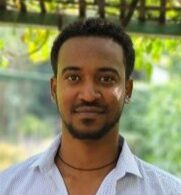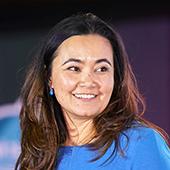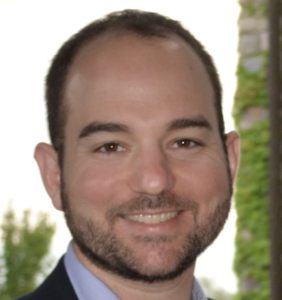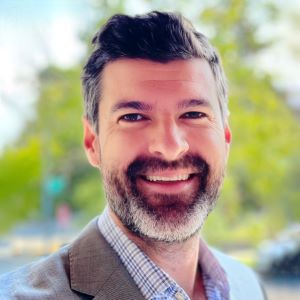DIALOGUES WITH DEXIS
Crisis Without Conclusion: Adapting Programming to Protracted Conflicts
On June 18, 2024, panelists and Dexis Senior Advisor, Andrew Sinclair, drew on their experiences working in Ethiopia, Ukraine, and across the U.S. interagency to discuss how donors and stabilization, peacebuilding, and development practitioners can adapt programming to protracted conflicts.
Development, stabilization, and peacebuilding programs designed to address and respond to conflicts have traditionally relied on—or assumed—some level of stability, predictability, and a functioning political process or peace agreement. However, today’s conflicts, from Gaza and Ukraine to Sudan and Ethiopia, are increasingly protracted, manifesting into complex crises with no clear end to armed hostilities or political resolution in sight. Despite efforts towards adaptive management and shock-responsive programming such as USAID’s Shock Responsive Programming and Adaptive Mechanisms guidance, many programs still struggle to adapt to the ongoing needs of countries experiencing prolonged armed conflict.
Nebiyu Tadesse, the Regional Program Manager for the USAID Office of Transition Initiatives (OTI) Ethiopia Support Program (ESP), set the stage by discussing ESP’s approach to adapting to the conflict in Amhara. To adapt to challenging political conditions, ESP supported local partners who could act as intermediaries between the public and the government and implement community strengthening activities to minimize the impacts on civilians caught in the fighting. Nebiyu attributed ESP’s success to its adaptive model, which relies heavily on localization; short-term, grant-funded programs; close collaboration with OTI; and non-traditional programming—all of which allowed for flexible, responsive, and iterative programming amid a dynamic and violent conflict.
Mehri Druckman, the Ukraine Country Director at IREX, continued the conversation by describing how IREX adapted its work following Russia’s full-scale invasion of Ukraine in 2022. IREX first prioritized staff and partner safety before shifting programming to include emergency response and addressing immediate needs of communities impacted by the invasion. Mehri attributed IREX’s success to several factors, including IREX’s longstanding relationships with local partners and stakeholders, clear and timely guidance from donors allowing for flexibility, and the resilience of Ukraine’s private and public sectors and civil society following the invasion. Mehri shared tips for adapting programming to conflict, including clear and timely guidance from donors; worst-case scenario planning; simplified procedures from both donors and implementers; and spaces for self-care and to manage trauma. However, it is important to remember, as Mehri stressed, “agile management is only possible with agile funding.”
David Young, the Deputy Director of the Lessons Learned Program at the Special Inspector General for Afghanistan Reconstruction (SIGAR), rounded out the conversation by reflecting on how “upstream” or donor-level, bureaucratic, and political challenges can prevent policies for better conflict programming from becoming widely adopted practices across the U.S. Government. David pushed for improving conflict-focused approaches across the interagency by prioritizing adaptive management and shock-responsive programming as core foreign assistance functions, rather than outlier priorities retrofitted into traditional development instruments. He advocated for this institutional re-orientation to transform the development-focused personnel mechanisms, regulations, and procedures that often hinder the application of conflict-responsive approaches. David also reminded the audience that these shifts are vital as conflict settings increasingly become the norm, not the exception for aid programs.
All the panelists underscored the necessity of utilizing adaptive, localized, and flexible programming to address the unique challenges of protracted conflicts. The panelists highlighted the need to build strong local partnerships, have agile funding mechanisms, and tailoring program interventions for the context on-the-ground. However, as conflicts become more complex, unpredictable, and prolonged, traditional development approaches, including institutional reforms, must also evolve to ensure effective and responsive programming.
Dialogues with Dexis brings together diverse practitioners in conflict prevention, stabilization, governance, and global security to discuss emerging trends and new innovations. To receive future event invitations from Dexis, sign up below.
Featured Panelists

Nebiyu Tadesse, Regional Program Manager, USAID Office of Transition Initiatives (OTI) - Ethiopia Support Program, Dexis Consulting Group
Nebiyu Tadesse is the Regional Program Manager for the USAID/OTI Ethiopia Support Program, where he oversees the Amhara region portfolio, which strives to foster peace and stability. With over seven years of managerial experience in the humanitarian and development sectors, he has spearheaded several impactful projects in WASH, rehabilitation, psychosocial support, and peacebuilding, prioritizing disability inclusion. He has a bachelor’s degree in civil engineering and a master’s degree in project planning and management. Beyond work, he is a devoted father to a two-year-old daughter and loves listening to audiobooks and podcasts.

Mehri Druckman, Ukraine Country Director, IREX
Mehri Druckman is the Ukraine Country Director at IREX, where she oversees a $100 million portfolio and supports more than 100 staff implementing multi-donor portfolios in areas such as media literacy, veteran affairs, public diplomacy, and independent media. Mehri is also the Chief of Party for the USAID-funded Ukraine National Identity through Youth (UNITY) activity. Previously, Mehri designed and managed the Learn to Discern project, an innovative solution to disinformation that reached over 15,000 Ukrainians and is now applied in over 20 countries. She also served as the Global Technology Advisor for IREX's Bill and Melinda Gates Foundation-funded Beyond Access project, helping build the capacity of public libraries to deliver efficient services that meet local community needs.

David Young, Deputy Director – Lessons Learned Program, Special Inspector General for Afghanistan Reconstruction
David Young is the Deputy Director of the Lessons Learned Program at the Special Inspector General for Afghanistan Reconstruction (SIGAR). He is the lead author of SIGAR’s lessons learned reports on U.S. stabilization efforts, U.S. support to elections, the agency’s 20-year anniversary report “What We Need to Learn,” and the congressionally mandated report, “Why the Afghan Security Forces Collapsed.” He has extensive field experience in six conflict/post-conflict environments: Afghanistan, the Sahel, Israel/Palestine, the Balkans, the Caucasus, and Northern Ireland. In the past, he has worked as an advisor to the U.S. Department of Defense, the World Bank, the U.S. Institute of Peace, Adam Smith International, and Interpeace. His writing has been published in the New York Times, Foreign Policy, and The Atlantic.

Andrew Sinclair, Senior Technical Advisor, Dexis Consulting Group
Andrew is the Senior Advisor for Dexis’ Center for Global Security and Stabilization, leading strategy and thought leadership across Dexis’ security and foreign assistance portfolios. He brings considerable expertise operating in complex conflict environments with the U.S. government. Before joining Dexis, Andrew served as the USAID/OTI Country Representative for both Libya and Syria. In Afghanistan, he led the Paktya Provincial Reconstruction Team for USAID. Before his federal service, Andrew researched multilateral peace operations at the Center on International Cooperation. Andrew holds a Master of International Affairs from Columbia University and served as a Peace Corps Volunteer in Jordan.
Event Details
Tuesday, June 18, 2024
10:00 am – 11:00 am EST
Online Event
This event has concluded.





